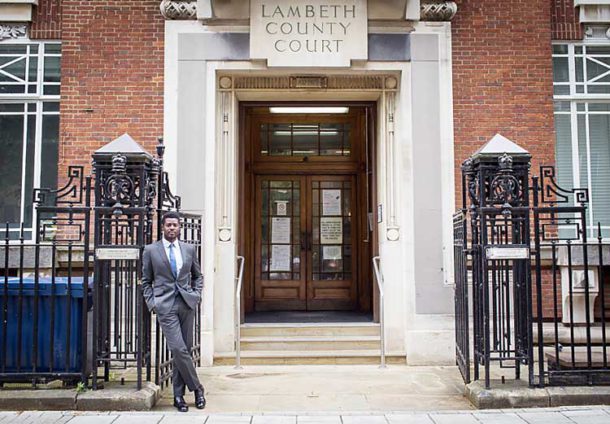Nathan Scott, barrister at law and adviser and county court advocate at the Brixton Advice Centre, looks at how national politics hits local people hard and what may be in store for them after tomorrow’s Autumn Statement by Chancellor Phillip Hammond

In his 2015 summer Budget, then Chancellor George Osborne announced what many consider the most austere measures in recent British history.
As part of eliminating the budget deficit by 2020, Osborne intended to reduce welfare spending by £12 billion. His measures included reducing the benefits cap by £3,000 per year for claimants living in London and up to £6,000 for those in the rest of the country, a measure which came into effect on 7 November. For many thousands of Londoners in work, but on low pay and needing Housing Benefit or other supplementary benefits in order to cope with the increasing costs of living in the capital, this was a huge blow.
Despite rapid development, Brixton is still one of London’s most stressed communities. Working in legal aid at the Brixton Advice Centre, I witness the consequences of Osborne’s punitive policies on some of the poorest people, already living a hand-to-mouth existence.
What is increasingly common, but much less recognised due in no small part to a media that promotes a diet of “welfare scroungers”, is the impact of these policies on people who are in work and not wholly reliant on benefits. In a well-publicised speech, Prime Minister Theresa May vowed that her government would be driven not by the interests of the rich but by those who are “just about managing” (JAM).
I see increasing numbers of residents of Brixton being sucked into cuts-created personal and family crises. I have defended people in County Courts and Tribunals – overworked nurses, underpaid teachers and the self-employed are just some of many who are beginning to feel the sting of Osborne’s policies which increasingly restrict people’s ability to meet the cost of living in the capital and remain in their homes.
Osborne’s 2015 budget signalled a death knell of sorts for many – both literally and figuratively. His austerity is a well documented canvas adorned with badges of rocketing food bank use – 1,109,309 three-day emergency food supplies given out to people facing crises in 2015/2016, 110,364 of which to Londoners – as well as reduced social security available to the most vulnerable.
Failing a significant shift in government policy, people in work but on lower incomes, disabled people relying on state assistance and claimants actively seeking work will all face a sustained reduction in real income. The high cost of living means a higher percentage of Londoners than is perhaps appreciated will be disproportionately hit.
Tragically, already, the loss of benefits has proved fatal, with numerous reports drawing uncomfortable links between the rates of increase in social welfare cuts and increases in the rates of suicide – an unacceptable reality of life on the fringes in 21st century Britain.
The Institute for Fiscal Studies last month warned that poorer households are set to become poorer still because benefits will no longer rise in line with CPI (consumer price index), a double blow of freezes on top of cuts.
Failing a significant shift in government policy, people in work but on lower incomes, disabled people relying on state assistance and claimants actively seeking work will all face a sustained reduction in real income. The high cost of living means a higher percentage of Londoners than is perhaps appreciated will be disproportionately hit.
In light of Theresa May’s pronouncements about helping the “just about managing”, it is worth speculating whether her government will now quietly reverse some of Osborne’s more damaging policies. Will there be a discernible change in fortunes for the poor and “just about managing” with the change of Chancellor?

In his first address as Chancellor on 3 October, Philip Hammond gave away precious little. Due to Brexit, a “new times call for new policies” approach was unsurprisingly mooted, coupled with the abandoning of the aim of a budget surplus in four years’ time. It would, however, be a bold move for Hammond to significantly ease the throttle of austerity.
Indeed, it would be uncharacteristic. As Transport Secretary in 2011, Hammond voted in favour of what became known as the “bedroom tax”. As Defence Secretary, in 2012, he voted against a measure to provide exceptions for those with a cancer diagnosis or undergoing cancer treatment from the 365-day limit of receiving contributions-based Employment and Support Allowance. In 2015, as Foreign and Commonwealth Secretary, Hammond voted to freeze many working-age benefits and to reduce the amount low-earners are eligible to receive in tax credits.
In one of his final votes before being appointed Chancellor, in June 2016, Hammond voted for reductions in benefits for disabled and sick claimants who are deemed “capable for work” in the first instance.
The devil will be in the detail of Hammond’s upcoming autumn statement. Brexit-generated economic turbulence could feasibly delay a public recognition of our new Chancellor’s intentions now that he has assumed control of the reins of austerity. His voting record, however, does not lend itself to a confidence that there will be any grand departure from the amount and frequency of cuts in welfare spending.
The tolling of the bell looks set to continue as the ranks of the “just managing” continue to swell and more shift into the ranks of “the poor”. The effects will be felt first in London and local residents must be prepared to confront this reality.
© Copyright 2016 Nathan Scott







in June 2016, Hammond voted for reductions in benefits for disabled and sick claimants who are deemed “capable for work” in the first instance.
Surely you mean incapable for work ie wrag Work Related Activity Group who may be fit for work at some point in the future?